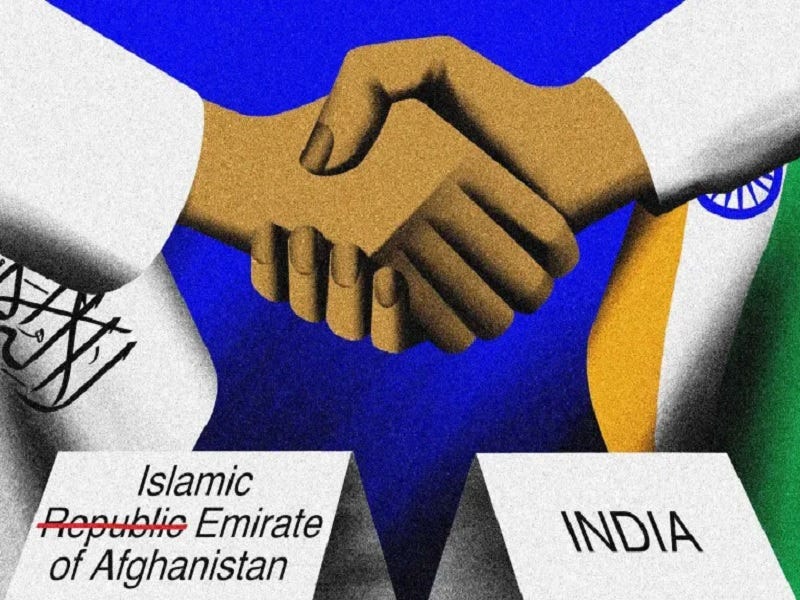The Taliban and India tacitly agreed that now is the perfect time to take this step in order to jointly hedge against possibly forthcoming US-encouraged Pakistani-emanating threats.
Afghanistan’s Embassy in India experienced a diplomatic shake-up the other day that observers like The Hindu’s Kallol Bhattacherjee interpreted as proof that Taliban-Indian ties are progressively improving. Long story short, a changing of the guard is presently underway whereby pre-Taliban diplomats are on their way out of the country while their reportedly Taliban-loyal underlings have been promoted to replace them. If this is an accurate assessment of what’s happening, then it’ll benefit average Afghans.
The Hindu reported that modalities might soon be worked out for India “to help the Afghan students, refugees, patients and traders who have not severed ties with India despite the absence of formal diplomatic ties over the past more than two years.” In other words, “engagement minus recognition may emerge as a compromise formula that will help thousands of Afghans staying in India…while providing India with a nascent channel with the Taliban to address concerns” about regional terrorist groups.
Building upon these expectations, Indian-Afghan ties might then get back on track with a view towards eventually returning to their excellent state prior to the Taliban’s takeover of the country two years ago. For that to happen, more meaningful cooperation between these two would have to ensue, ergo the importance of last month’s Taliban-Iranian rapprochement that was explained here. This could unlock Afghanistan’s economic potential by connecting it to India’s North-South Transport Corridor (NSTC).
In that event, average Afghans would reobtain reliable logistical access to one of their country’s top pre-Taliban-takeover trade partners, which could lead to gradual improvements in their living conditions. That would in turn reduce the likelihood that their compatriots could cavort with terrorist groups out of economic desperation. The end result of improved Taliban-Indian ties would therefore indisputably benefit average Afghans’ socio-economic and security situations.
There’s a grand strategic dimension to all of this too with respect to more meaningful bilateral cooperation reducing Afghanistan’s disproportionate dependence on Pakistan. Those two are embroiled in an escalating security dilemma that risks destabilizing the region, especially if Pakistan’s de facto US-aligned military leadership complies with any potential demands from its newly restored overlords to worsen the situation. Suffice to say, an untold number of average Afghans could suffer if that happens.
Considering this, the diplomatic shake-up that’s reportedly taking place at the Afghan Embassy in Delhi should be viewed as a mutually beneficial move aimed at accelerating that landlocked country’s disproportionate dependence on Pakistan through the progressive improvement of ties with India. It can therefore be concluded that the Taliban and India tacitly agreed that now is the perfect time to take this step in order to jointly hedge against possibly forthcoming US-encouraged Pakistani-emanating threats.




